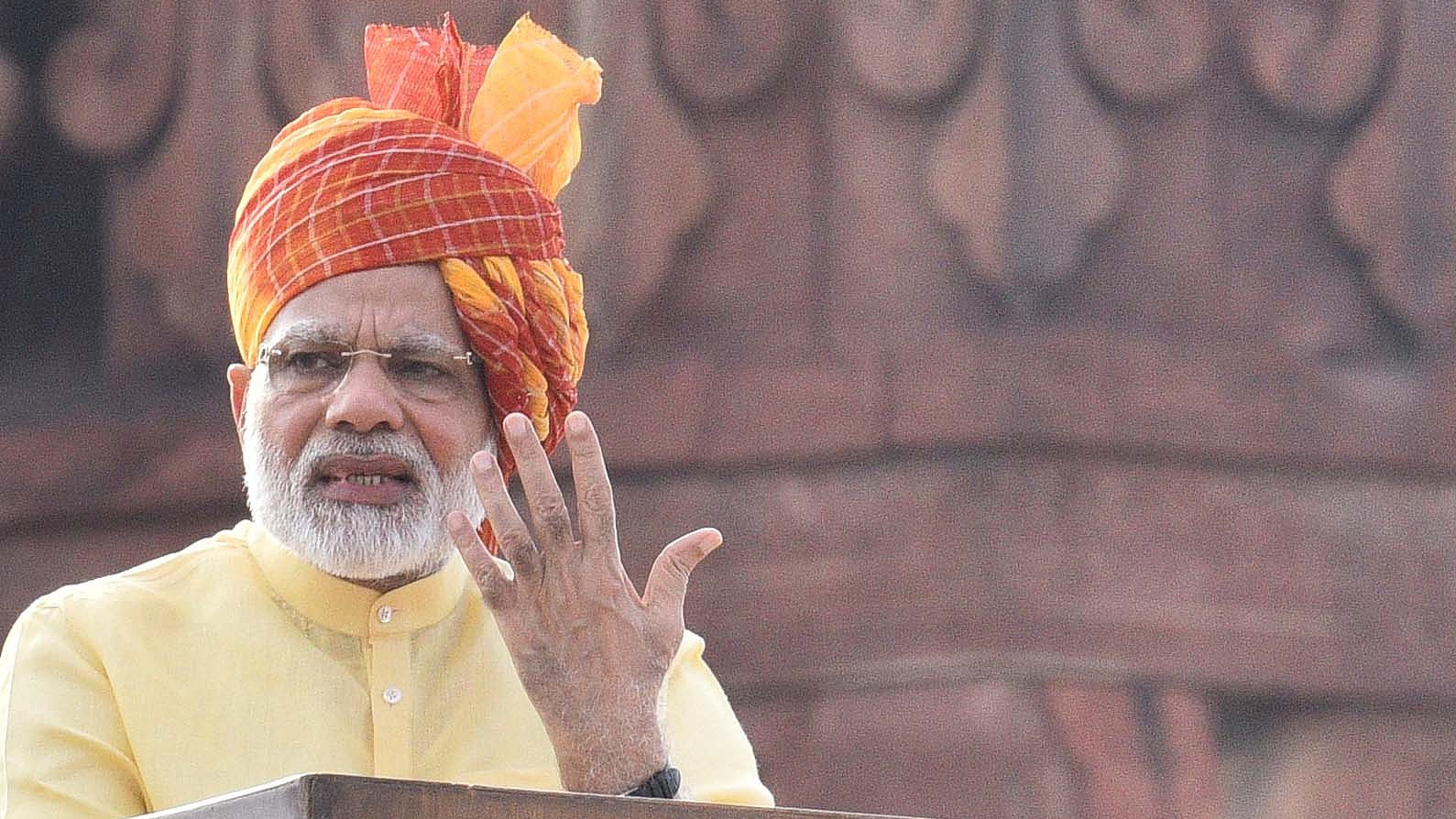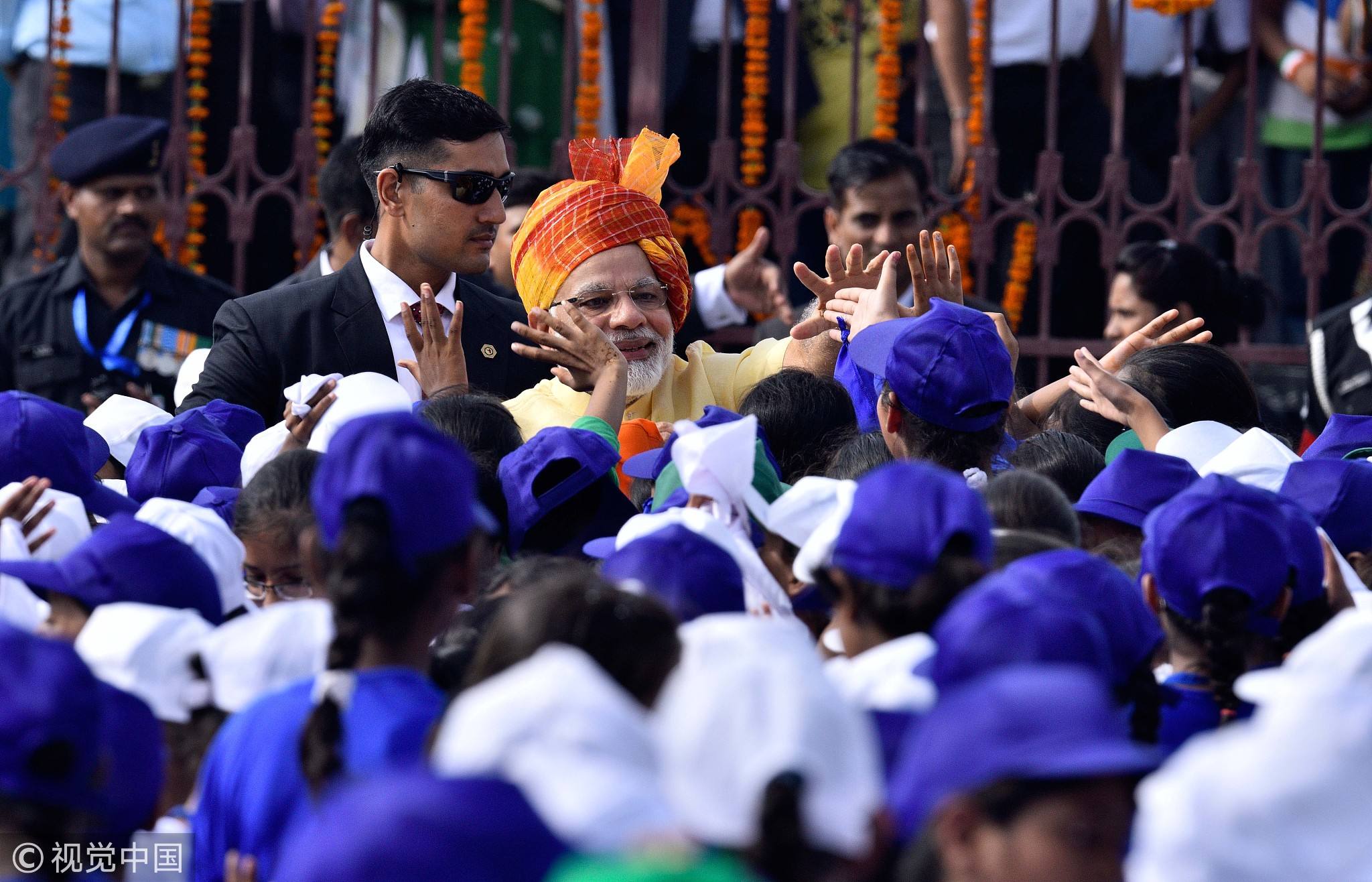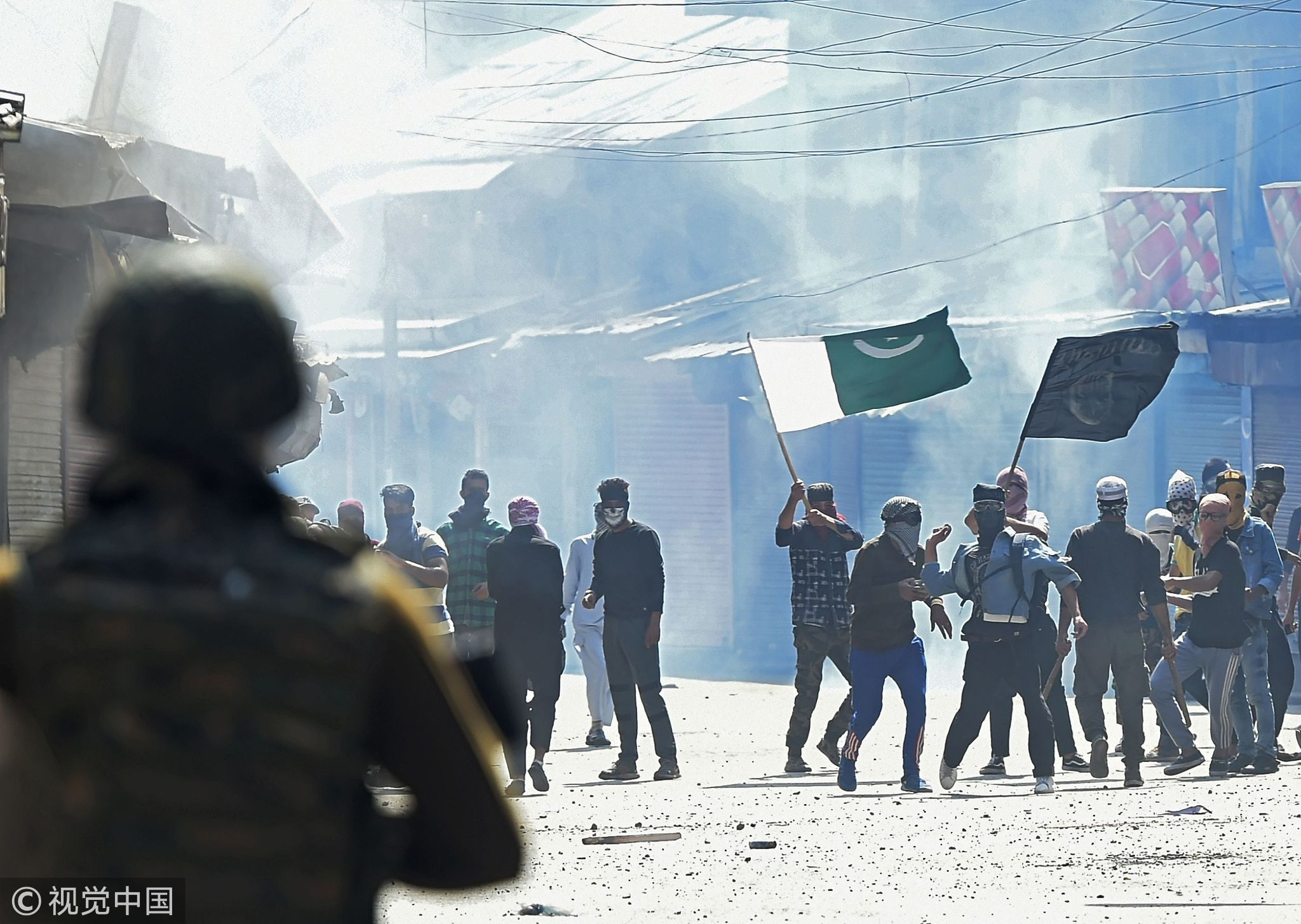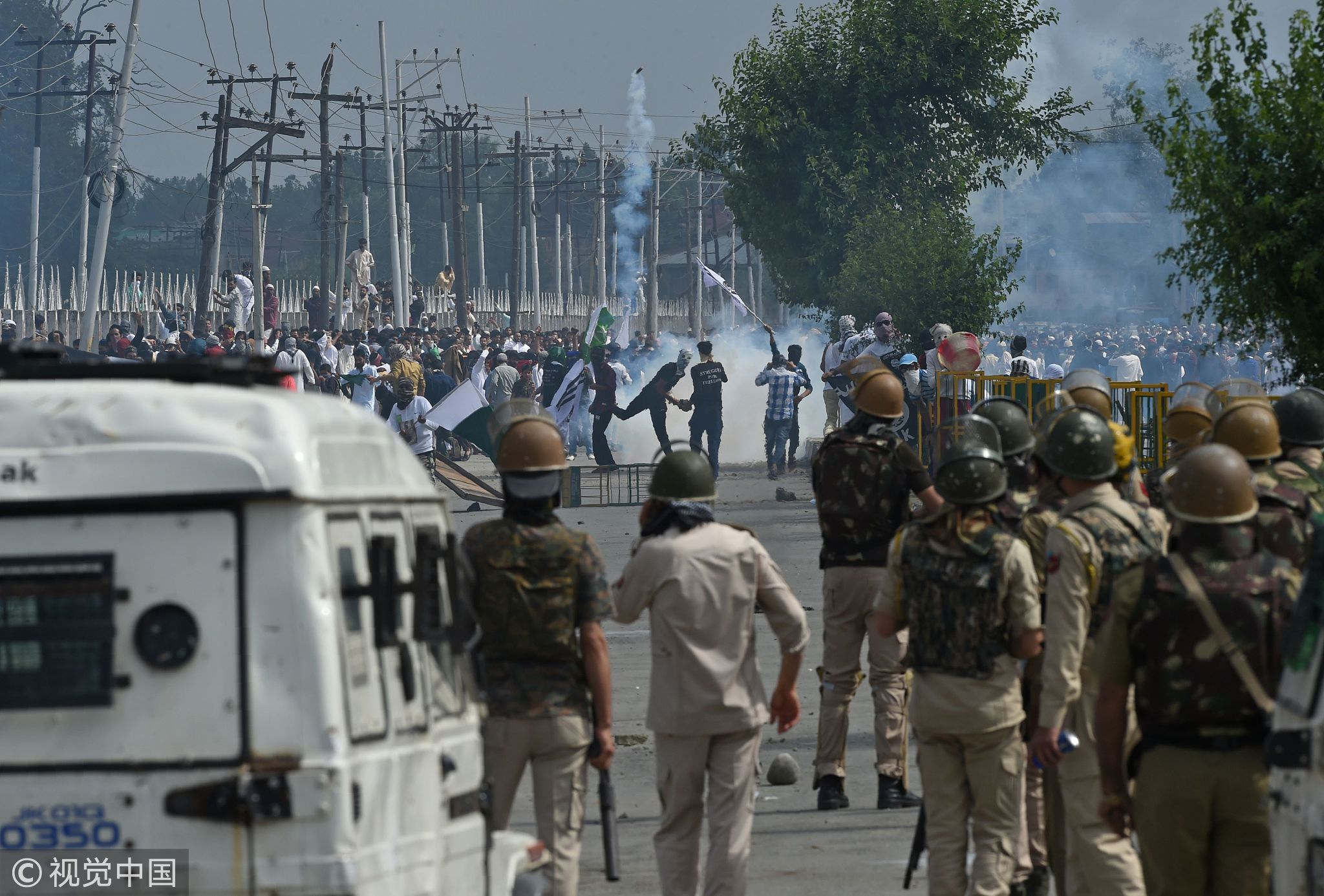
Politics
16:42, 22-Jun-2018
Indian-controlled Jammu and Kashmir come under direct rule, as Narendra Modi eyes re-election
By Neha Poonia

The Indian state of Jammu and Kashmir is now under the direct rule of the ruling Bhartiya Janata Party (BJP) after the announcement that iBJP was ending its three-year-old alliance with the local Muslim majority People's Democratic Party.
Direct rule implies that the governor of the state will be in charge until another party stakes claim to forming government or until fresh elections are called.

Prime Minister Narendra Modi interacts with children on the occasion of 71st Independence Day Celebrations at Red Fort, on August 15, 2017, in New Delhi, India. /VCG Photo
Prime Minister Narendra Modi interacts with children on the occasion of 71st Independence Day Celebrations at Red Fort, on August 15, 2017, in New Delhi, India. /VCG Photo
As per the Indian constitution, the governor of Jammu and Kashmir in this instance will not act of his own volition but at the behest of the federal government of India – in this case, Prime Minister Modi's BJP.
So even though the BJP may have notionally lost control of the state of Jammu and Kashmir, it has in effect consolidated its hold.
While announcing the end of the alliance, the BJP claimed that its position had become "untenable" over the last three years and that remaining in the coalition government was no longer in the "wider interest of the nation." The party blamed its ally, the PDP, for the increased violence in Kashmir during its tenure.
However, many critics of the BJP have called this an opportunistic move.

Kashmiri protestors and government forces clash after Friday prayers during the last Friday of Holy month of Ramadan in downtown Srinagar on June 8, 2018. /VCG Photo
Kashmiri protestors and government forces clash after Friday prayers during the last Friday of Holy month of Ramadan in downtown Srinagar on June 8, 2018. /VCG Photo
One of Modi's key election promises before he was elected in 2014 was to "normalize" the situation in Jammu and Kashmir.
Many were surprised when his Hindu-nationalistic party aligned with the PDP in 2014.
The alliance was called "contradictory" because the BJP had a hardline approach to Kashmir and was in favor of the use of increased military might in the state. Its former ally, the PDP wanted Modi's government to talk to separatists who want independence from India and also wanted to include Pakistan in that dialogue process.
Both India and Pakistan claim Kashmir in full but the state is ruled in parts by both countries. India blames Pakistan for supporting and fueling an armed rebellion in the state.
Three years of the coalition government in Kashmir saw a dramatic spike in unrest, with 2017 being the bloodiest year. The killing of a young militant leader Burhan Wani by security agencies in 2016 marked the beginning of increased resistance against Indian rule.

Kashmiri youths through stones during clashes between protestors and Indian government forces in Srinagar on June 16, 2018. /VCG Photo
Kashmiri youths through stones during clashes between protestors and Indian government forces in Srinagar on June 16, 2018. /VCG Photo
As a coalition partner in the state, many were holding the BJP equally accountable. Through its exit, the BJP will be aiming to send its wider, Hindu-majority electorate a message that it refused to compromise on its "muscular policy" on Kashmir and in exchange of upholding its principles, it was even ready to sacrifice being in government.
The more important message, however, will be delivered over the next few months. With the BJP now solely in-charge of Kashmir, it has indicated it will exhibit "no mercy for terrorists." It has already deployed India's elite National Security Guard, the elite anti-terrorism squad, to Kashmir, where these troops will be used to counter militant attacks.
Its hardline approach in Kashmir will be now likely be presented to BJP's wider Indian electorate as proof, that the party refused to compromise in Kashmir and that it was willing to go that extra mile in the interest of "national security."

SITEMAP
Copyright © 2018 CGTN. Beijing ICP prepared NO.16065310-3
Copyright © 2018 CGTN. Beijing ICP prepared NO.16065310-3